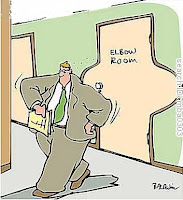I was recently coaching a team and used an old favourite of mine – the ‘shared history’ – as a way of catching everyone up with the ‘story’ of the team. It involves sitting everyone in the order they joined the team and briefly telling the tale of how they came to join and what was going on at time. What usually emerges is a rich picture of the team’s back story which gives a sense of the struggles and successes to date as well as the personalities involved.
The exercise had the reaction I often get – the old hands are amazed at how much water has passed under the bridge – “I’d forgotten about ….I hadn’t realised how much we’ve done!”. The new joins are mightily relieved to get a handle on the context they now find themselves operating in and why things are the ways they are – “It all makes a whole lot more sense now!”
The membership and purposes of a team are always shifting yet we often talk and act as if a ‘team’ is a static entity. How would it be if we considered the team to be new team every time a new member joined? What would it take to pay more attention to their integration and assimilation into the team story?





